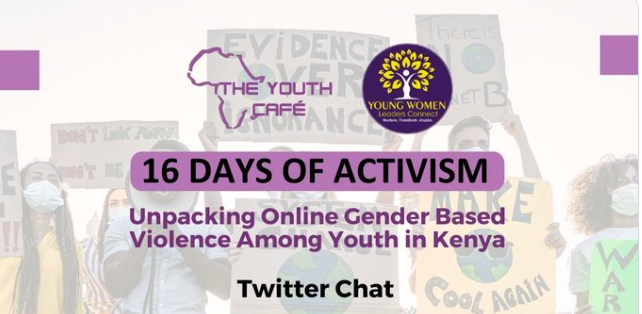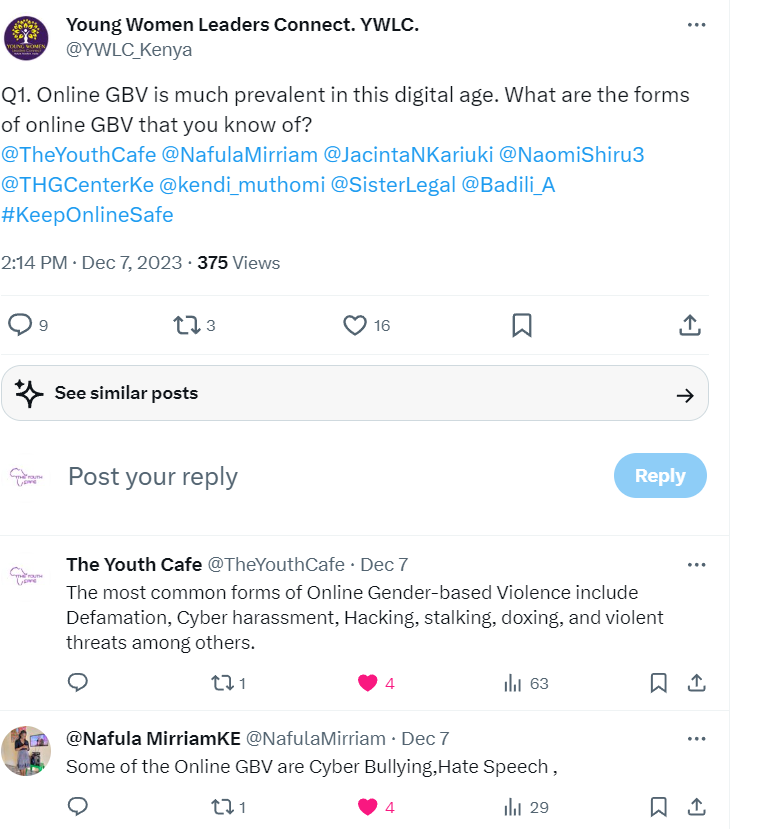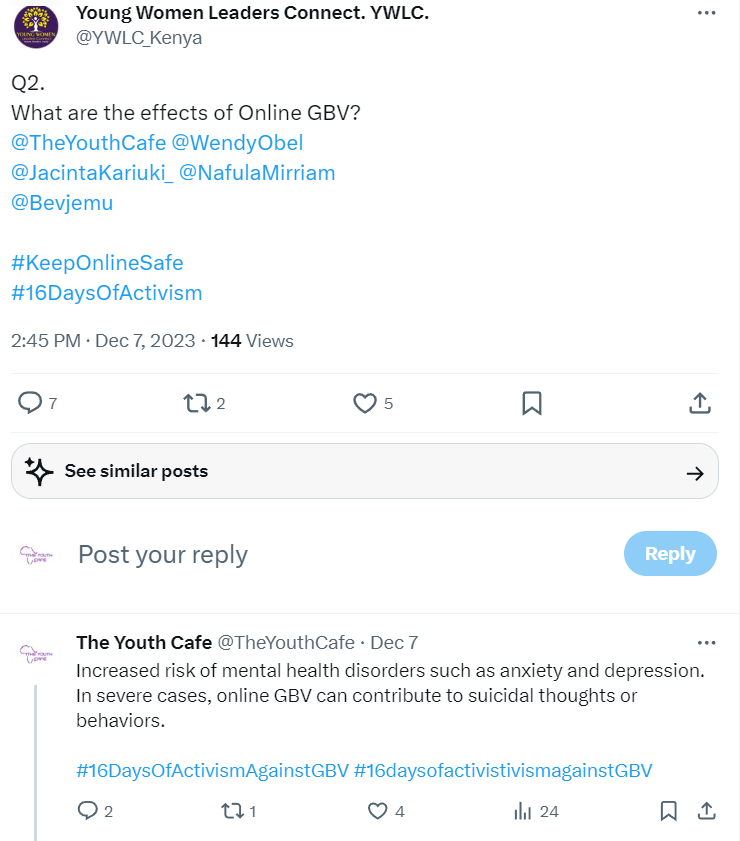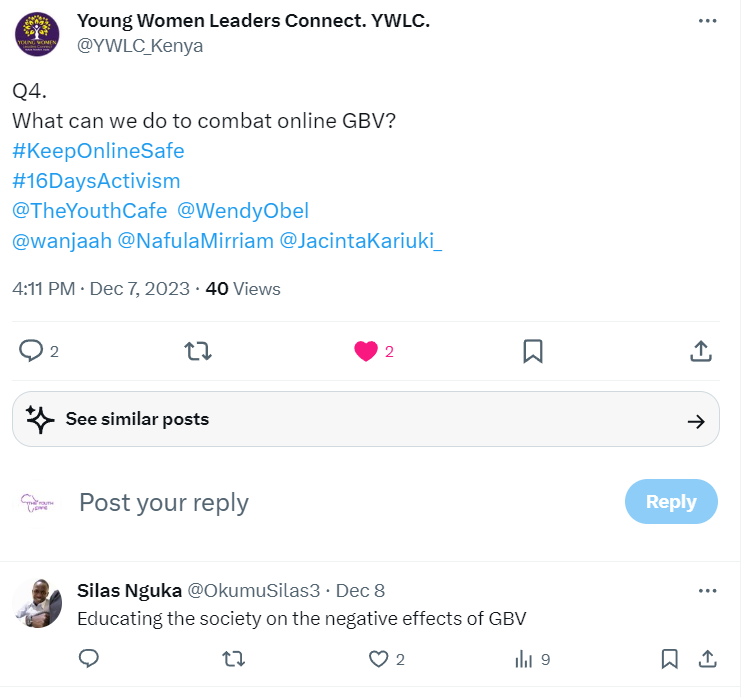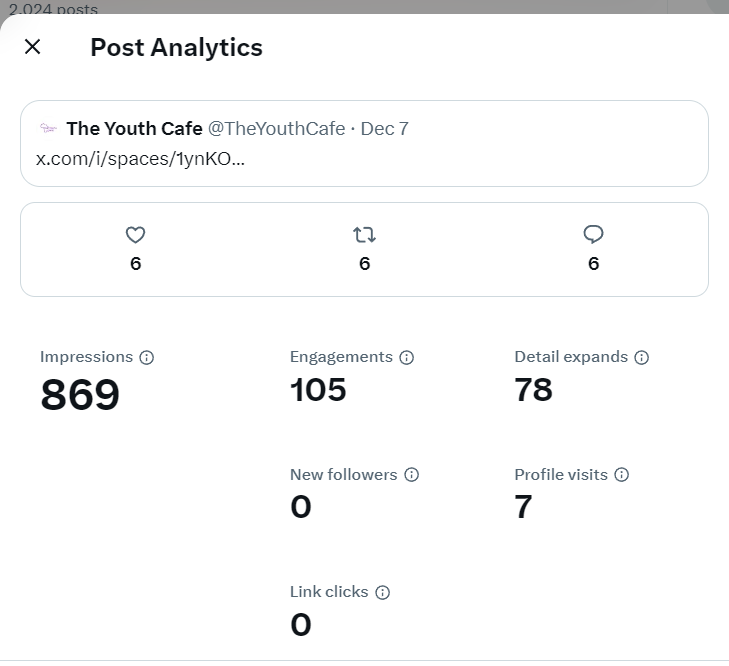Theme: Unpacking Online Gender-Based Violence Among Youth in Kenya.
Background
The "16 Days of Activism Against Gender-Based Violence" is a global campaign aimed at raising awareness and mobilizing action to end violence against women and girls. This annual initiative, spanning from November 25th, the International Day for the Elimination of Violence Against Women, to December 10th, Human Rights Day, brings together individuals, organizations, and governments to advocate for a world free from gender-based violence. The campaign serves as a powerful platform to challenge societal norms, promote gender equality, and call for meaningful policy changes to address the pervasive issue of violence against women. The campaign takes a critical stance against the growing threat of online gender-based violence (OGBV), recognizing the digital realm as an increasingly common space for perpetuating violence against women and girls. This specialised focus addresses the challenges posed by technology, social media, and the internet in fostering a safer and more inclusive online environment.
Online gender-based violence encompasses a range of harmful behaviours targeting individuals based on their gender, often facilitated through digital platforms. This includes but is not limited to cyberbullying, harassment, doxing, revenge porn, and online threats. The anonymity provided by the online space can exacerbate the impact of these forms of violence, leaving victims vulnerable and facing long-lasting consequences. OGBV is not confined to specific geographical regions or demographics; it is a global issue that demands coordinated efforts to address its root causes and consequences.
In partnership with Young Women Leaders Connect(YWLC), The Youth Cafe organized a Twitter(X) space and chat discussion on December 7, 2023, centred around the theme 'Exploring Online Gender-Based Violence Among Youth in Kenya.' A turnout of 635 participants, composed of young individuals and youth organizations, actively engaged in the live discourse on Twitter(X). Additionally, many viewers continued to join the conversation and interacted with the Twitter(X) recording post-event. The discussions provided an invaluable platform for raising awareness, fostering dialogue, and encouraging meaningful interactions surrounding the critical issue of online gender-based violence affecting the youth in Kenya.
Panellists:
Wanja Maina- Team Lead the Hummingbird Grassroots Centre
Beverly Jemutai- Expert in providing psychosocial support and implementing social protection programs
Philip Asin- Community Development Expert
Lynda Banja- Lawyer, Social entrepreneur, mentor, Facilitator, trainer and consultant on GBV SRHR
Esther Mayende from The Youth Cafe moderated the discussion.
Twitter (X) Chat
The conversations took place on the Twitter page of YWLC (@YWLC_Kenya), where participants actively responded to thoughtfully crafted discussion prompts. Participants shared diverse perspectives and insights throughout the exchange, contributing to discussions on the specified topics.
Forms of online GBV
Among the most commonly mentioned forms of online GBV were defamation, where false and damaging information is disseminated to harm an individual's reputation, and cyber harassment, encompassing persistent online behaviours intended to intimidate or cause distress. Hacking and doxing were highlighted as malicious practices involving unauthorized access to personal information and subsequent public exposure. Violent threats, cyberbullying, and hate speech were recognized as significant concerns, reflecting the use of digital platforms to harm, discriminate, or humiliate individuals. The term "Cyber Assault" was introduced, covering a spectrum of online attacks threatening individuals' online safety. Other identified forms included character defamation, impostors, online incitements, body shaming, intimate image abuse, and the unauthorized revelation of personal information.
Effects of Online GBV
Participants provided insights into the effects experienced by victims. One significant effect highlighted was the increased risk of mental health disorders, notably anxiety and depression, with severe cases potentially leading to suicidal thoughts or behaviours. Online harassment, often characterized by body-shaming, contributes to negative body image and diminished self-esteem among victims. Stress, anxiety, and depression were identified as prevalent outcomes of online GBV, underscoring the detrimental impact on mental well-being. The experience of online violence was also recognized as a catalyst for low self-esteem, reduced confidence, and, in extreme cases, self-harm. Participants raised awareness about the potential escalation of online violence into physical harm, posing immediate threats to victims, and the enduring distress that could lead to severe consequences, including death. Moreover, the fear induced by online violence and threats was identified as a silencing factor among women and girls, inhibiting open discourse and perpetuating a culture of fear.
Understanding of Online Gender-Based Violence
Participants defined Online Gender-Based Violence as any act committed or amplified through digital tools or technologies, resulting in physical, sexual, psychological, social, political, or economic harm to individuals based on their gender. Online GBV extends beyond the digital realm to infringe upon individuals' online rights through abuse, thus compromising the integrity of digital spaces.
Moreover, participants highlighted the prevalence of emotional and psychological violence inflicted on others through online media, mainly social media platforms. The term "online media abuse" was highlighted as a critical aspect, defined as actions that advance emotional and psychological violence against individuals in the digital landscape. Other definitions include: online GBV encompasses actions carried out using the internet or mobile technology, including but not limited to sexual harassment, hate speech, and exploitation.
Strategies Proposed by Participants:
Educating Society on Negative Effects
Participants highlighted the role of education in combatting online GBV. They emphasized the need to raise awareness within society about the adverse effects of GBV, particularly in the online space. Education was seen as a powerful tool to promote empathy, understanding, and a collective commitment to preventing online GBV.
Reporting
A practical approach suggested by participants was the active reporting of messages and images that degrade women and girls. Participants believed online platforms could be held accountable by encouraging individuals to report such content, fostering a safer online environment.
Supporting Women-Led Organizations
Participants recognized the significance of supporting and empowering women-led organizations as instrumental in the fight against online GBV. They argued that These organisations play a crucial role in advocacy, support, and creating dialogue platforms that address the challenges women and girls face in the digital realm.
Involving Women in Decision-Making Processes
Another key recommendation was the active involvement of women in decision-making processes. Participants argued that women's perspectives and experiences must be integral in shaping policies, guidelines, and strategies addressing online GBV. This inclusion, they believe, would result in more effective and contextually relevant approaches.
During the discussion, Beverly highlighted various forms of online gender-based violence (GBV), including cyberbullying, online harassment and abuse, pornography, sexist comments targeting specific genders, sextortion, online grooming, and sex texting. She emphasized that online GBV affects all genders. Wanja expressed concern about women being more susceptible to technology-facilitated GBV, pointing out issues such as non-consensual posting of sexual media, reverse pornography, and doxing. She noted that these actions, often perpetrated by men, negatively impact women in politics and public figures, leading to both online and physical violence.
Wanja shared her personal experience of facing insults and abuse related to her political interests, marriage, and childbirth. She stressed that being added to a WhatsApp group without consent should be considered a form of violence. Wanja advocated for seeking psychosocial support and using helplines like 116 for child support and 1195 for women experiencing GBV. She suggested reporting, practising safe online usage, and limiting online exposure.
The impacts of online GBV were discussed, including severe psychological effects such as anxiety, depression, social isolation, low self-esteem, and even suicidal tendencies. Philip added that substance abuse, physical health issues, and stress are also consequences. Coping mechanisms were suggested, such as having a support group, seeking counselling, and raising awareness.
The discussion touched on the patriarchal nature of society contributing to online GBV, with examples of how cultural norms and bystander culture perpetuate the issue. Legal frameworks, including the Computer Misuse and Cybercrimes Act of 2018, the Children Act of 2022, the Sexual Offences Act of 2006, and the Penal Code, were highlighted by Beverly. She emphasized the importance of awareness, education, and supportive communication.
Daniel, a participant, shared an issue where individuals record videos or take photos of others on the street without consent, including people in the footage who may not appreciate being included. This practice raises concerns about privacy and respect for personal boundaries in public spaces.
Mike, a participant, stressed the need for user awareness and the steps to take when reporting GBV online. Wanja called for accountability from social media companies and massive tech companies in tightening security laws. Individual responsibility was emphasized, urging people not to share explicit content. The discussion also touched on the ethical implications of tech companies' agreements and the need to scrutinize them.
Conclusion
In Conclusion, the Twitter chat and Twitter Space served as platforms for meaningful dialogue, fostering a deeper understanding of the complexities of online GBV and encouraging collective efforts to address and mitigate its far-reaching impacts. The insights shared by the participants contribute to ongoing conversations aimed at creating a safer and more inclusive digital space for everyone.


